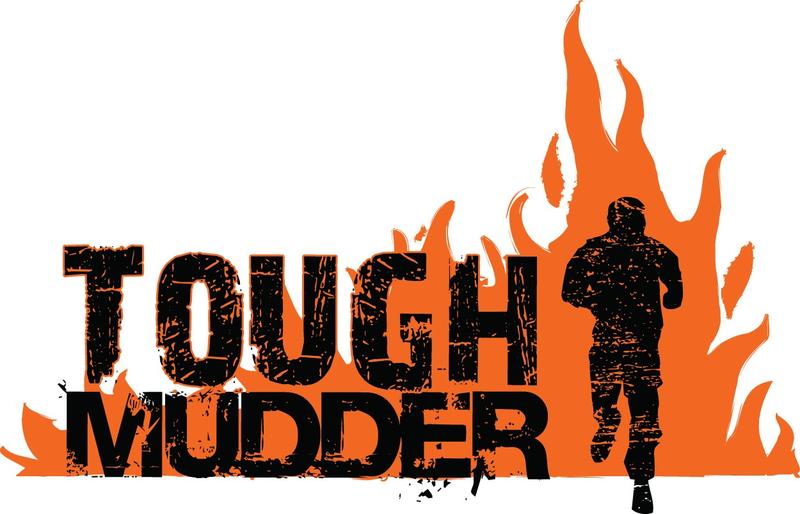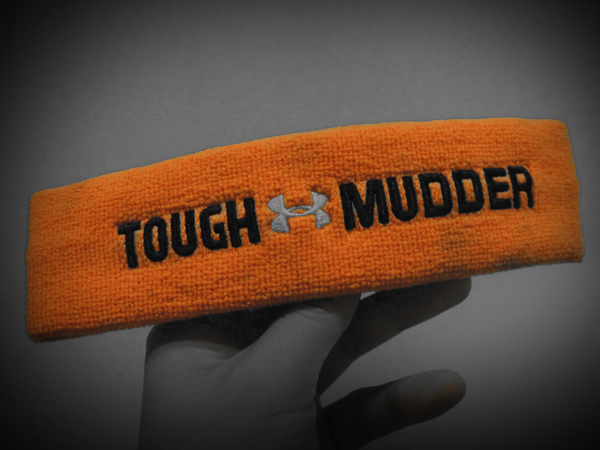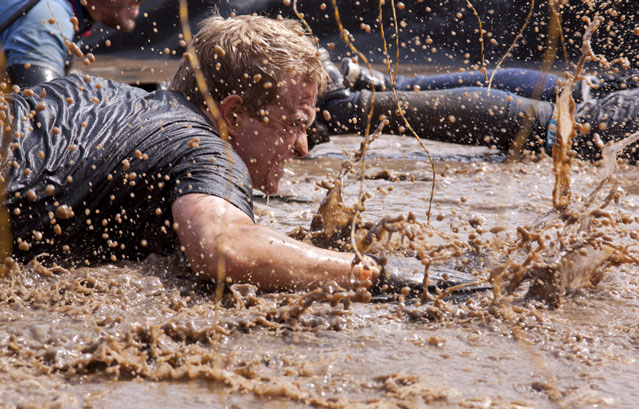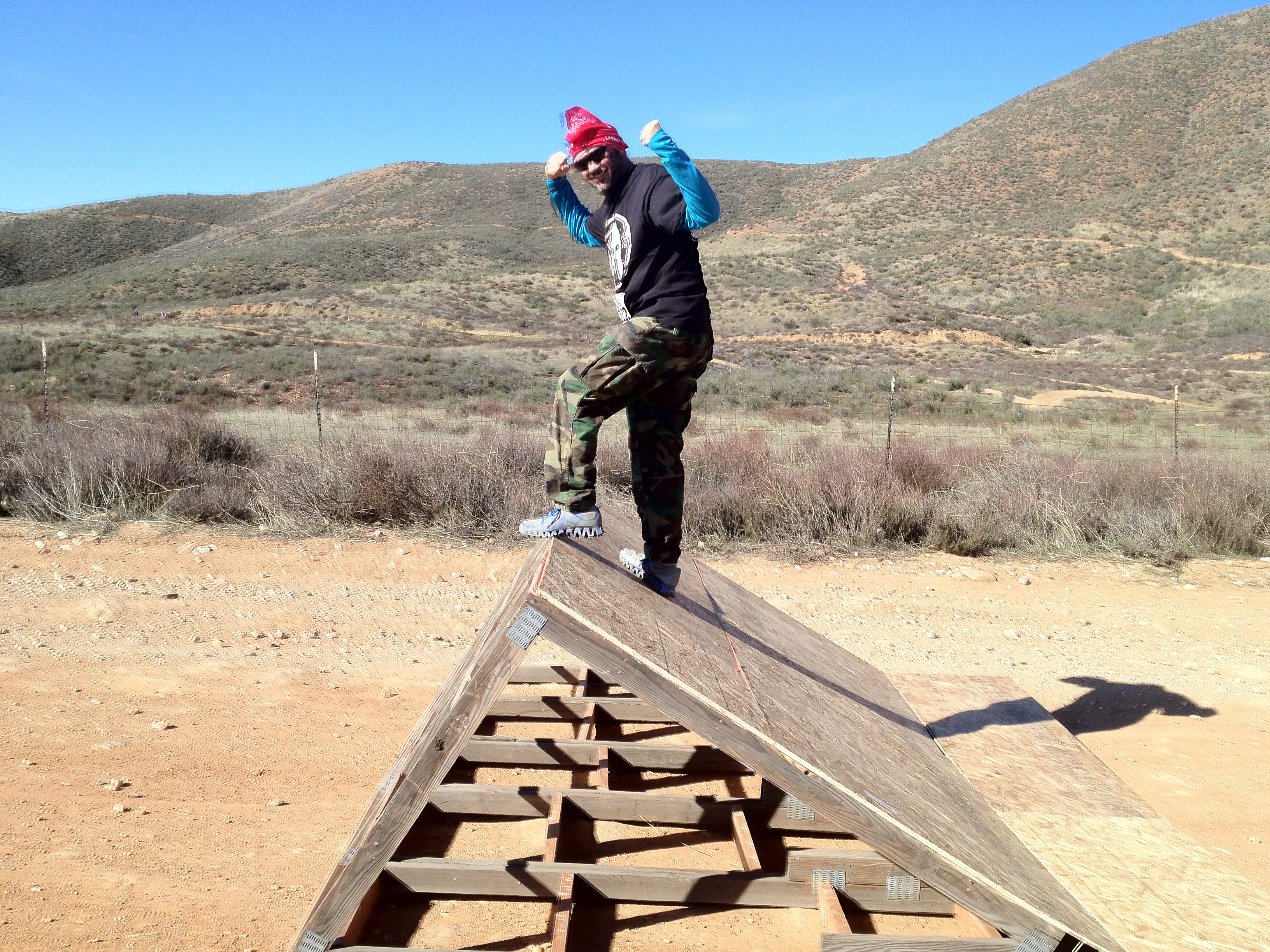This was a great article that I wanted to share from Outside Magazine. The article tried to explain why obstacle racing is so popular amount young Americans. I would beg to differ. I this that obstacle racing has cross paths with almost all age groups from the youngest racers who participate in kids races and the young at heart who are about to start collecting their Social Security. I don’t think this is just a young man’s sport. This has become something that every age group can enjoy.
You can read the full article written by Renee Jacques here.
Dodging live electrical wires, diving headfirst into a “Frozen Enema,” and running through fresh piles of manure are sure-fire ways to relieve stress and forget, for just a few hours, about everyday pressures.
“What am I doing here?” This is what I ask myself—out loud too—as I’m standing in line on a crisp Saturday morning in Englishtown, New Jersey, waiting to plunge my body into a tank full of ice-cold neon green water, then swim under a wooden wall, and climb out the other side.
I’m staring down into the menacing watery depths bobbing with mini icebergs questioning my sanity. I look at a girl to my right who is escaping the same pit of freezing hell in a tank next to me, and she is literally convulsing as some guy pries her out of the liquid. Well, if she can do it, then I can too. I take a deep breath and I jump in.
It’s the cold shock that gets you. It wakes you up—as if you have been living in some sort of subdued numb-state. My mind hasn’t thought this way before. Everything is erased and all that matters right now is breathing. Because I can’t. I gasp as I come up from the water. My heart feels like it has stopped. I think it has. Someone grabs me because I’m not moving. I’ve just frozen in the frigid air and it whips me. I’m shaking on the ground trying to figure out how to stand without wobbling into a crying heap on the ground.

It’s October 20, 10 a.m., 55 degrees out, and I have just traveled two hours from New York City to New Jersey to compete in an extreme obstacle challenge called the Tough Mudder. The obstacle I had just completed—accurately dubbed “The Frozen Enema”—is only the first in a series of 22 military-style challenges that I will face. Throw a 12-mile run into the mix and I’ve got quite the day ahead.
But as I start jogging with my team and I move on to the next challenge— a series of hills slopped with mud (strongly smelling of manure)—I’m surprised at how excited I am to get in there. Especially because I only decided that I would do this the night before the event.
I was stressed and on Facebook chat. I felt overworked and overwhelmed with grad school, relationship problems, and money issues; the usual gambit was weighing on my poor 22-year-old head. And like most other twenty-somethings in America I was taking it out the only way I know: through social media.
A chat box popped up from my cousin, Mike, a journalist who has been investigating the obstacle-racing phenomenon for the past year and has become a serious devotee. Even after his repeated explanations, I still couldn’t fathom why someone would subject their body and mind to such excruciating pain when they just didn’t have to.
I started complaining about my life to him and he told me to do the race because it would be a good stress reliever. He would sneak me in. I said, “Yes!” I would do it. It didn’t matter that the only form of exercise I regularly do is running and I have absolutely no upper-body strength.
What the hell.
So that’s how I found myself the next day chin-deep, dog-paddling across a river, four hours into the challenge, cursing anyone and everything. Because at the end of my swim awaited a flimsy net I was supposed to attach my body to and climb up in order to reach a plank, which I was then supposed to jump off of—about 15 feet—onto straight concrete.
It went like this for about two-thirds of the whole thing—with me constantly berating myself and complaining to Mike, saying there was “no fucking way” I would be able to climb over a series of 16-foot walls with virtually no assistance or crawl on my stomach through water as charged electrical wires hung directly above threatening to shock me at any moment.

But I did it all. And by the end of the event (which took about seven hours) I found myself feeling weird. Weirdly good. All of a sudden, I didn’t want it to be over. I was actually getting some sort of pleasure from this. It felt surreal and I was confused at this new feeling. How could I—all of five feet and 95 pounds—manage this feat?
What I was most shocked by is what the event did to my psyche. The primal aspect of the event kicked my senses into overdrive and it made me feel really human for once. All I needed to care about was my physical body. Pushing it to its outmost limits cleansed my brain of impeding and frivolous thoughts. In essence, the only thought was survival, and that, surprisingly, felt better than thinking about any other “pressing” issue in my life.
On the ride home I stared out the window in silence, pondering what exactly had just gone on that day. I didn’t want to go back to the real world, full of pressure—insurmountable pressure only reinforced and amplified by technology. It was as if I had removed the wires that keep me plugged into my crazy world where I literally get anxiety thinking about what social media platform I should check first when I sit down at my computer.
It can be tremendously daunting to belong to the young adult category of our world today but only because we care so intensely about ourselves. There’s this sickly preoccupation with “me.” It’s all about us and what we think. Everywhere around us, blogs are telling us how to regard a certain issue, Twitter is informing us about what is important, and Facebook and Instagram seem to only regurgitate back all of the narcissistic nothings we spew out on a day-to-day basis. This media frenzy has left us frazzled and puzzled as to how to pick up the pieces of our scattered minds and form real concrete thoughts.
Perhaps this is why obstacle-racing events like the Tough Mudder are becoming increasingly popular—especially among young Americans. Every day we are faced with negativity, older generations telling us our future is bleak, prophesying our destinies like really mean fortune tellers. It’s hard for us to feel like we can meaningfully contribute to society, let alone find a job. So we are left feeling an uncomfortable sense of futile complacency only reassured by the belief that everyone around us is suffering the same American emptiness. It can all be really distressing.
But for a few days after the Tough Mudder, I was calm. Things were different. I didn’t look at my emails panicking about the next thing that could go wrong in my little sphere of an existence and I didn’t stay up all night (like I usually do) looping my bleak future in my mind. I felt happy and content. I had accomplished something that felt momentous. I spontaneously did something that ended up positively changing my feelings about myself and I felt like a new person—someone who wasn’t so hesitant and frightened. My petty life problems were nothing compared to crawling through claustrophobic pipes full of freezing mud restricting my every movement.
The Tough Mudder forces you to forget about your responsibilities and just live in the moment—without wanting to take a picture of it or write a status about it. I’m still not entirely sure what the challenge’s intangible lure is. It’s hard to put into exact words why it is so enjoyable.
On the surface, for some people, it’s the personal achievement of training for months and knowing you successfully completed a physically grueling challenge. For others, like me, it’s the realization that your body and mind are capable of doing things you thought were literally impossible before.
The Tough Mudder gives you that unmatchable high that comes with the discovery of something new. It’s like taking a new drug and waking up the next day and looking back on your experience with awe and confusion—but mostly intrigue.
Whatever it is, all I really know is I just want to do it again.














Speak Your Mind